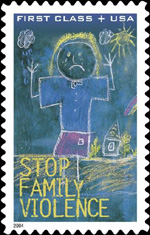How an abuser can discover your internet activities: if you worry that someone might see where you've been on the internet, or might read your email, please read this information.
Some of the stories may be difficult to read - sometimes because the words themselves are hard to understand and sometimes because the stories are about very painful experiences that people have had. You might want to read them with a friend, or try to have a friend or counsellor nearby if you want or need support or someone to talk to about these stories and your reactions to them.
My name is Rose by Rose Dion. A photo story about one young woman's experiences with overcoming violent relationships.
If you could see me now! Stories by women who survived abuse. Compiled and edited by Evelyn Battell and Kate Nonesuch.
I Told Myself I am Going to Learn by Elizabeth Ndaba. A woman stands up for herself and her right to study. (scroll down)
Available from Peppercorn Books. Stories written by women of their experiences with violence in very basic, clear language; the book reflects experiences of five women in Canada and is dedicated to the many other survivors around the world.One Berkeley Woman's Struggle for Literacy
Amanda White's story
A Woman Like You , the face of domestic violence.
When I go home I'm going to talk Indian , by Carol Hodgson - one of many stories about the violence perpetrated against First Nations people by the residential school system. To learn more about The Reservation Boarding School System in the United States, click here.
This is one story from Love is the Answer: Still feel angry, still remember the pain
"Before he used to beat me up. But not any more. Since I came to the US he never beat me up, but when I was in the camp if I go anywhere without permission, he always take something and whip me. But not a small stick. With a big stick, until it broke. The blood came from my back, til I'm all tired out and he stop hitting me and take food away from me. Not let me eat.
When he hit me, I run away from home. I'd sleep under the house with no blankets, and lots of mosquitoes biting.
I was 10. I didn't really listen to him, but he had no right to hit me. If I didn't cook for him, he beat me up. My mom was in Bangkok, Thailand with my sister. When she came back, she couldn't recognize me because I am so skinny. When she left I was chubby; when she return three months later was so skinny. She ask my dad what was wrong with me. But I didn't tell her anything until we come here to the US. Here I am not afraid because he's scared if he hit me the cops will come.
When I told my mom, she was really pissed off, and told me I should have told her before. She wouldn't have let him treat me like that. She later divorced him. I see him and say hello and stuff. But I'm still angry. I still remember the pain."
This is an essay on violence written by Pedro Henrique, a student at the American School in Rio de Janeiro, Brazil.
Violence is a feeling of anger or hate. Many people use violence to resolve things today, and I think this is the wrong thing to do. Violence doesn't necessarily mean hitting others. Violence is not the right side to choose things. The book, Staying Fat For Sarah Byrnes, showed some violence. The part that touched me the most relating to violence was when Sarah said how her father treated her... He would leave her locked up sometimes, hit her, and it even got to the point of not giving her food! This is certainly violence.
The dictionary says violence is "a force used to cause injury or damage." I think it means more than a force. The thesaurus uses synonyms such as force, intensity, and rough. Some antonyms for violence would be peace, love, respect and especially the one I created that wasn't in the thesaurus or the dictionary, which is "consideration for others."
To me, violence means more than just hitting others. Violence means what is happening today to our people in the streets. Some kids are being forced to work at the age of seven or less. If the number of educated people increase in these coming years this violence would decrease. I think the government and society should help people who don't have jobs. People who can't afford food for their family or education to their children. These people get to be hurt by the government and because they don't have the power to do anything against the government, they have to accept the way they live. You can be thinking this has nothing to do with violence but I think it does.
[Pedro's entire essay had been linked to the American's school website, but not longer appears on the site ], as of July, 2003.
Domestic violence; online story from the California Distance Learning Project's Lifelong Learning Online.
 The US Post Office stamp to raise awareness of and funds for work to end domestic violence .
The US Post Office stamp to raise awareness of and funds for work to end domestic violence .
other stamps
take a virtual tour of a domestic violence shelter
back to violence home page
January 2, 2016